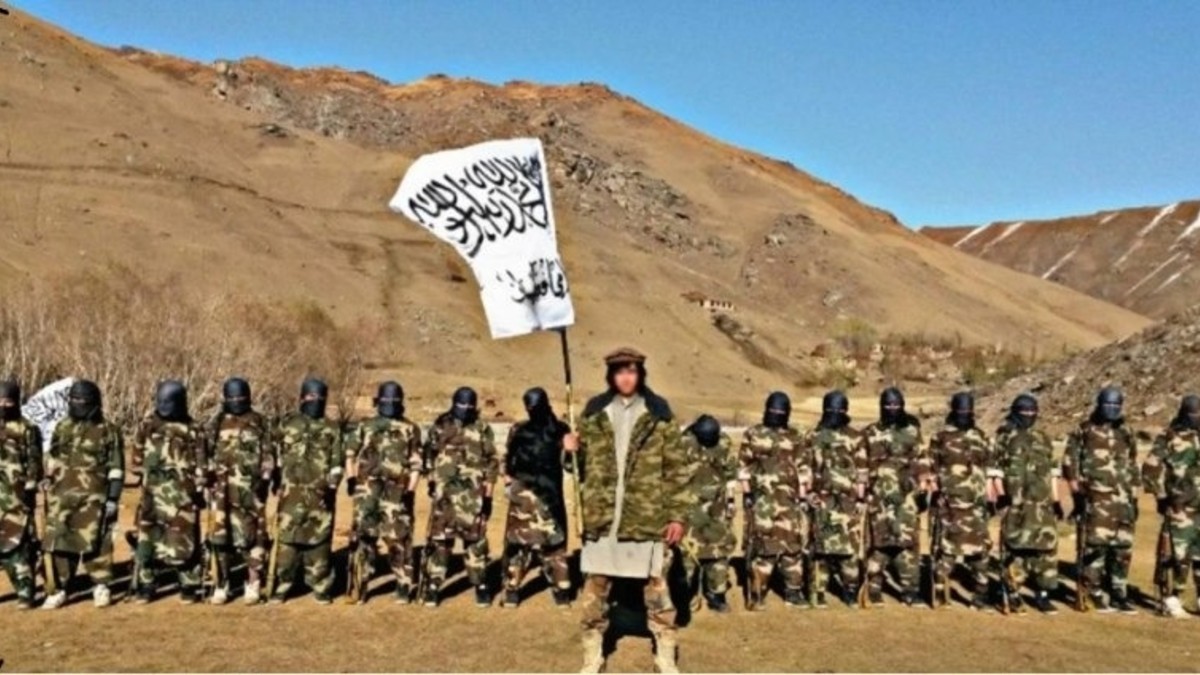Taliban Hold Turf, Reject Pak Overtures

Fighting diplomatic isolation and a collapsing economy, the Taliban, now in power in Afghanistan, are holding their turf and rejecting acquisitive overtures from Pakistan, their biggest facilitator.
Barely four months in power and still denied recognition across the globe, are they fighting back Pakistan’s moves to use its currency at the cost of the Afghani for trade. The Pakistani effort at dominating the currency exchange and preparing to dovetail the Afghan economy with its own has become another major irritant.
Since last month, small traders and locals in Afghanistan’s border provinces with Pakistan have begun to use the Pakistani rupee instead of the Afghani, a mandatory exchange currency under the Taliban dispensation.
Equally aggressive has been their fight back on the border by resisting Pakistan’s continued attempts to fence it. The fence was uprooted in Nangarhar province even as it was being laid by the Pakistani authorities.
Taliban and Pakistani forces came face-to-face over the border incident and the situation remains tense.
This happened, significantly in diplomatically terms, on Sunday, December 19, the day Pakistan was hosting a meeting of the OIC Foreign Ministers to discuss an urgent course to garner global humanitarian relief for the Afghan people.
This was the first reported border incident marking resumption of old tensions.
The message to Islamabad was that whatever its current problems, Kabul will not allow fencing, even if it on the Pakistani side, because that amounts to accepting the British-era Durand Line as the international border.
Pakistan has completed 90 percent of the fencing along the 2,600 kilometer border and this was a serious issue between Islamabad and the previous government in Kabul. There were numerous clashes. Successive Afghan governments have termed any curbs on the border like the fence as ‘illegal.’
The Pashtuns in Afghanistan view the border as an attempt to divide them from the Pashtuns in Pakistan. There is similar disrupting of border fence on the Pakistani side as well.
An exchange of mortar also occurred last Sunday, but Reuter’s global media outlet said it was not clear whether it was connected to the clash over border fencing.
Reuters quoted media reports in Kabul to say the Taliban soldiers seized the iron wire and equipment from the Pakistani personnel and asked to desist from laying the fence.
Both sides sought to play down the event. An official in Kabul confirmed the incident and a Taliban spokesman said the matter would be investigated. The Pakistani side declined to offer any comment by way of confirmation or denial of the incident. The Pakistan army did not respond to a request for comment, Reuters said.
The Taliban administration has taken the matter of stabilizing the Afghani as an imperative to help Afghan economy to stand on its feet; and the Pakistani state’s obvious encouragement to its currency being used instead of the Afghani has queered the pitch for the Taliban’s state economy policy.
In a video clip uploaded by an Afghan journalist Bilal Sarwary, Afghan Taliban Intelligence Chief of the Eastern Nangarhar province Bashir is warning Pakistani soldiers on the Durand Line: If you violate the boundary line, be ready for war with us. We love fighting you more than the Jews. We still have a lot of work to do.’
The same is happening on the Pakistani side as well. In a video clip, militants of the banned Tehreek-e-Taliban Pakistan were shown cutting and removing the wired fencing in Waziristan.
According to Afghanistan’s Khaama News, Pakistani forces launched artillery fire on the 20th. December night after the incident of removal of barbed-wire fencing in the Gushta district of Nangarhar province.
A security measure by Pakistan and an eyesore for Afghanistan, the border fencing has failed to curb movement of men, drugs, arms and smuggling of commodities, but has been a source of mutual mistrust.
The twin issues, analysts say, mark the beginning of resumed tensions between Afghanistan and Pakistan and if they persist, could create turn into public resentment in Pakistan where there is a nagging fear of refugee influx, spreads of militancy and smuggling, adversely impacting Pakistani economy.






